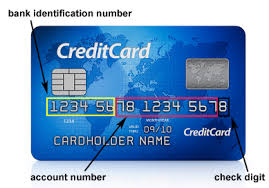
28
Are Credit Cards Checking Accounts? Understanding the Differences
Explore the key differences between credit cards and checking accounts. This article clarifies their unique functions, features, and how they impact your financial management.
Introduction
When it comes to personal finance, understanding the different types of accounts available is crucial. Many people wonder, “Are credit cards checking accounts?” While both are financial tools, they serve distinct purposes and operate in different ways. In this article, we will explore the differences between credit cards and checking accounts, helping you make informed financial decisions.
What is a Credit Card?
A credit card is a type of loan that allows you to borrow money from a financial institution up to a certain limit to make purchases. Key features of credit cards include:
- Borrowing Capacity: Credit cards allow you to spend beyond your current cash balance, as you are borrowing from the bank.
- Interest Rates: If the balance is not paid in full by the due date, interest will accrue on the remaining amount.
- Rewards and Benefits: Many credit cards offer rewards programs, cash back, or travel benefits for using the card.
What is a Checking Account?
A checking account, on the other hand, is a deposit account held at a financial institution that allows you to deposit money, withdraw funds, and manage your daily expenses. Key features of checking accounts include:
- Access to Funds: Checking accounts are designed for everyday transactions, allowing easy access to your deposited funds.
- No Borrowing: You can only spend what you have deposited, meaning there is no borrowing capacity as with credit cards.
- Fee Structure: Some checking accounts may charge monthly fees, though many offer fee waivers under certain conditions.
Key Differences Between Credit Cards and Checking Accounts
- Nature of Funds:
- Credit Cards: Borrowed funds up to a credit limit.
- Checking Accounts: Your own deposited funds.
- Repayment:
- Credit Cards: Require monthly payments with the potential for interest.
- Checking Accounts: No repayment; you use your own money.
- Usage:
- Credit Cards: Best for making purchases, building credit, and earning rewards.
- Checking Accounts: Best for managing day-to-day expenses and paying bills.
- Impact on Credit Score:
- Credit Cards: Usage and payment history can impact your credit score.
- Checking Accounts: Do not directly affect your credit score.
Conclusion
In summary, credit cards and checking accounts are not the same. They serve different purposes in financial management. Understanding their unique features can help you effectively use each tool for your financial needs. Whether you’re managing daily expenses or planning for future purchases, both credit cards and checking accounts have valuable roles in your financial toolkit.
For additional financial tools, consider checking out our online credit card validator tool to help you ensure the validity of credit card numbers and manage your finances more effectively!
Contact
Missing something?
Feel free to request missing tools or give some feedback using our contact form.
Contact Us